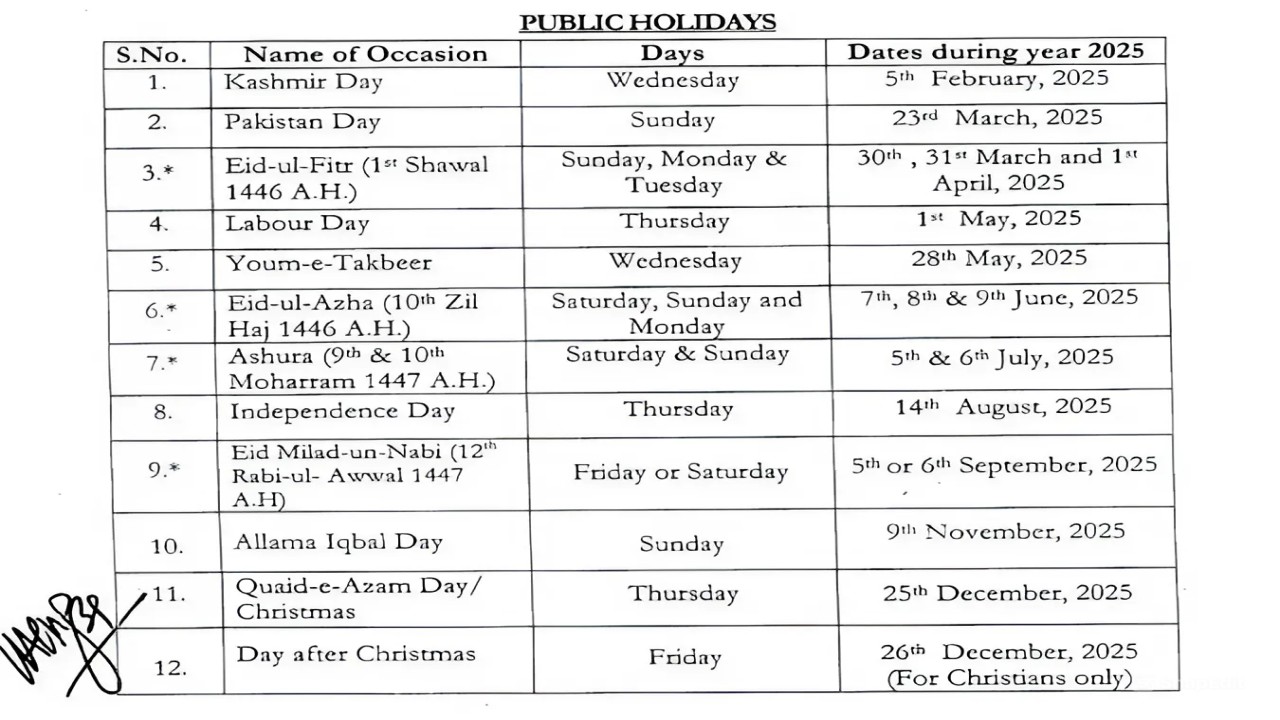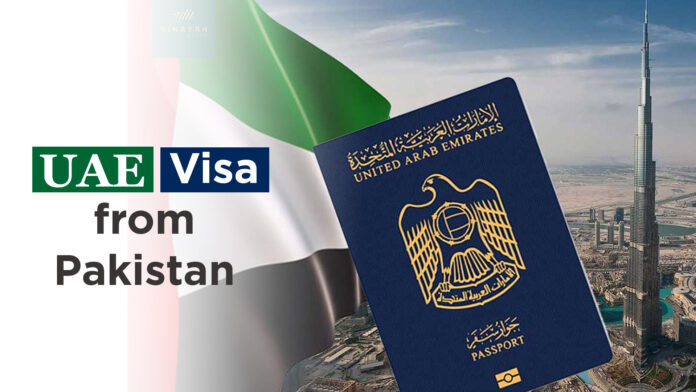As 2024 approaches its conclusion, the federal government has officially released a comprehensive schedule of public and optional holidays for 2025. The announcement, made by the Cabinet Division, includes holidays of national significance as well as religious festivals for Muslims and minorities residing in Pakistan. Below are the detailed insights into the guidelines and provisions shared in the official notification.
Public Holidays for 2025
Public holidays are designated for major national events and religious festivals and are applicable across all government and private sectors.
- Muslim Religious Festivals:
Public holidays for Eid-ul-Fitr, Eid-ul-Adha, Ashura (9th and 10th Muharram), and Eid Milad-un-Nabi (12th Rabi-ul-Awal) will be determined based on the appearance of the moon. A separate notification will be issued to confirm the exact dates closer to the events. - National Holidays:
These holidays include:- Pakistan Day (March 23)
- Labour Day (May 1)
- Independence Day (August 14)
- Quaid-e-Azam Day (December 25)

Optional Holidays for 2025
Optional holidays are primarily designed for religious or cultural observances and are granted under specific regulations to ensure organizational efficiency.
Key Guidelines for Optional Holidays:
- Approval Process:
No government servant is permitted to take an optional holiday without prior approval from the head of their organization. - Limitations on Optional Holidays:
- For Muslims: Each Muslim employee can avail only one optional holiday during the year.
- For Non-Muslims: Non-Muslim employees are entitled to up to three optional holidays per calendar year.
- Continuity of Work:
Optional holidays will be granted in a way that ensures sufficient staff remains available to maintain the smooth operation of government and organizational functions. - Denominational Significance:
Optional holidays must be of religious significance to the employee requesting them. While discretion rests with the organization head, a government servant’s request for an optional holiday should not be unreasonably denied if the request aligns with religious or cultural importance.
Important Notes on Moon-Based Holidays
The dates for all moon-based Muslim holidays, including:
- Eid-ul-Fitr
- Eid-ul-Adha
- Ashura (Muharram)
- Eid Milad-un-Nabi
will depend on the lunar calendar. These holidays will be finalized based on moon sightings, and the Cabinet Division will release a separate notification confirming the exact dates.
Regulations for Government Servants
The notification emphasizes the following:
- Work Prioritization:
Granting optional holidays must not result in dislocation of work. Organization heads are tasked with ensuring proper staffing to avoid disruptions. - Flexible but Regulated:
While optional holidays are designed to accommodate religious or cultural observances, their approval depends on the organization’s capacity to maintain operations. - Respect for Religious Significance:
Requests for optional holidays of religious importance should generally be honored, provided organizational functionality is not compromised.
Key Takeaways
- Public holidays are applicable to all, while optional holidays are subject to regulation.
- Government employees must seek prior permission for optional holidays, and limitations apply based on religious affiliation.
- National holidays and Muslim religious festivals form the majority of public holidays, with dates of some holidays depending on lunar sightings.
This structured approach ensures a balance between accommodating individual religious practices and maintaining the continuity of work within public and private organizations.
Stay connected for further updates on moon-based holidays and detailed lists for 2025.



